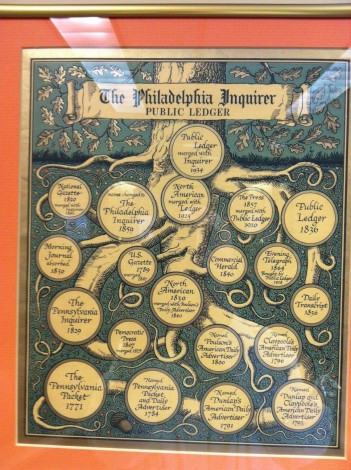
The importance, sway and influence of one of the world’s most dominant 20th century newspapers was the focus of the 1998 collection of essays about the once powerful Philadelphia Evening Bulletin, edited by its former education reporter Peter Binzen, who also wrote Whitetown USA.
Dubbed ‘Nearly Everybody Read It,’ a riff off the paper’s legendary slogan, the 163-page book has nearly 20 essays from former Bulletin reporters and editors, including its first female and black correspondents. For 135 years, the family owned paper was a powerhouse among a rich daily newspaper tradition in Philadelphia.
A central story line of the book was the Bulletin’s battle with the Inquirer, its chief rival, and how, in the end, the Inquirer, considered by many to be the chain response to the family-owned operation, won. Through all the bluster, I thought there were four primary reasons that rang most true to me:
- The Bulletin fundamentally failed to innovate, remaining an afternoon daily as circulation fell with growing TV news audiences, increasing transportation costs due to traffic and changing news cycles.
- The Bulletin failed to develop the revenue to stay competitive, including a premature sale of its nascent TV station, denying alcohol advertising and other funding methods that kept it lagging behind the Knight-Ridder funded Inquirer.
- The Bulletin resisted aggressive editorial reconfiguration, following the investigative spirit of the 1970s that soared the reputation of the Inquirer behind editor Gene Roberts, and pushed out its own innovative editor George Packard.
- The Bulletin came up short in following the suburban trend, having its 1947 purchase of the Camden Courier Post denied by the U.S. Department of Justice for anti-monopoly concerns was a large blow.
As I often do when reading something relevant to the news and innovation conversations I so adore, I wanted to share some choice thoughts from the book.
Continue reading Philadelphia Evening Bulletin history: ‘Nearly Everybody Read It,’ a 1998 book from Peter Binzen








